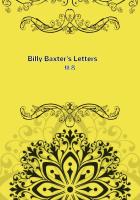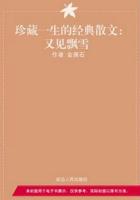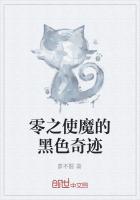(April 1830)
1. The Omnipresence of the Deity: a Poem By ROBERT MONTGOMERY.
Eleventh Edition. London. 1830.
2. Satan: a Poem By ROBERT MONTGOMERY. Second Edition. London:
1830.
THE wise men of antiquity loved to convey instruction under the covering of apologue; and though this practice is generally thought childish, we shall make no apology for adopting it on the present occasion. A generation which has bought eleven editions of a poem by Mr. Robert Montgomery may well condescend to listen to a fable of Pilpay.
A pious Brahmin, it is written, made a vow that on a certain day he would sacrifice a sheep, and on the appointed morning he went forth to buy one. There lived in his neighbourhood three rogues who knew of his vow, and laid a scheme for profiting by it. The first met him and said, "Oh Brahmin, wilt thou buy a sheep? I have one fit for sacrifice." "It is for that very purpose," said the holy man, "that I came forth this day." Then the impostor opened a bag, and brought out of it an unclean beast, an ugly dog, lame and blind. Thereon the Brahmin cried out, "Wretch, who touchest things impure, and utterest things untrue; callest thou that cur a sheep?" "Truly," answered the other, "it is a sheep of the finest fleece, and of the sweetest flesh. Oh Brahmin, it will be an offering most acceptable to the gods." "Friend," said the Brahmin, either thou or I must be blind."
Just then one of the accomplices came up. "Praised be the gods," said the second rogue, "that I have been saved the trouble of going to the market for a sheep! This is such a sheep as I wanted. For how much wilt thou sell it?" When the Brahmin heard this, his mind waved to and fro, like one swinging in the air at a holy festival. "Sir," said he to the new comer, "take heed what thou dost; this is no sheep, but an unclean cur." "Oh Brahmin," said the new corner, "thou art drunk or mad!"
At this time the third confederate drew near. "Let us ask this man," said the Brahmin, "what the creature is, and I will stand by what he shall say." To this the others agreed; and the Brahmin called out, "Oh stranger, what dost thou call this beast?"
"Surely, oh Brahmin," said the knave, "it is a fine sheep." Then the Brahmin said, "Surely the gods have taken away my senses"; and he asked pardon of him who carried the dog, and bought it for a measure of rice and a pot of ghee, and offered it up to the gods, who, being wroth at this unclean sacrifice, smote him with a sore disease in all his joints.
Thus, or nearly thus, if we remember rightly, runs the story of the Sanscrit Aesop. The moral, like the moral of every fable that is worth the telling, lies on the surface. The writer evidently means to caution us against the practices of puffers, a class of people who have more than once talked the public into the most absurd errors, but who surely never played a more curious or a more difficult trick than when they passed Mr. Robert Montgomery off upon the world as a great poet.
In an age in which there are so few readers that a writer cannot subsist on the sum arising from the sale of his works, no man who has not an independent fortune can devote himself to literary pursuits, unless he is assisted by patronage. In such an age, accordingly, men of letters too often pass their lives in dangling at the heels of the wealthy and powerful; and all the faults which dependence tends to produce, pass into their character. They become the parasites and slaves of the great. It is melancholy to think how many of the highest and most exquisitely formed of human intellects have been condemned to the ignominious labour of disposing the commonplaces of adulation in new forms and brightening them into new splendour. Horace invoking Augustus in the most enthusiastic language of religious veneration; Statius flattering a tyrant, and the minion of a tyrant, for a morsel of bread; Ariosto versifying the whole genealogy of a niggardly patron; Tasso extolling the heroic virtues of the wretched creature who locked him up in a madhouse: these are but a few of the instances which might easily be given of the degradation to which those must submit who, not possessing a competent fortune, are resolved to write when there are scarcely any who read.















